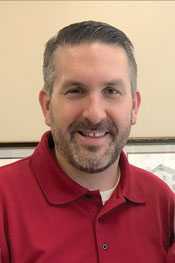There’s a place in the Bluegrass State that few Kentuckians have ever heard of and fewer still have ever visited. It is an area that is nearly surrounded by the Mississippi River and can only be entered by first going into Tennessee. Yet this obscure place, known as “Kentucky Bend,” was once the site of a mighty move of God.

Ben Stratton
Kentucky Bend is a part of Fulton County and is located at the farthest western tip of Kentucky. It is composed of 17½ square miles of fertile farmland, dotted with giant cottonwood trees. Today it is peaceful and scarcely populated. The 2010 census reported only 18 residents.
However this was not always the case. In the 1800s, more than 300 people lived there. Most of them were sharecroppers. The extreme poverty, coupled with the isolation, made bloodshed very common. Mark Twain’s 1883 book Life on the Mississippi said Kentucky Bend was a place where “men would shoot boys, boys would shoot men. A man shot a boy 12 years old — happened on him in the woods, and didn’t give him no chance. If he had ‘a’ given him a chance, the boy’d ‘a’ shot him.”
Madrid Bend Baptist Church had been started in Kentucky Bend before the Civil War. Unfortunately such violence caused the church to close its doors and the community was left without a gospel witness.
In the spring of 1905, the West Kentucky Baptist Association held a meeting to discuss upcoming mission work. Kentucky Bend was mentioned. Preachers had gone there previous years with no success. One had been pelted with rotten eggs, another had been beaten badly and left for dead. Moderator J.N. Hall asked those gathered who would take the gospel to Kentucky Bend. No one was willing to volunteer.
Finally, a young 24-year-old preacher named J.W. Bruner said he would go. A native of Hancock County, Bruner was a student at nearby Clinton College. He told Hall, “If God wants a meeting down there, He will protect the one who goes. He is still alive and I am willing to go.”
The meeting was set for Sept. 18-28, 1905. At first, things were calm. But on the fifth day, Bruner was told to get out of Kentucky Bend — or else. His song leader abandoned him, taking his horse and buggy.
Believing God would protect him that night, Bruner boldly preached the gospel from Isaiah 33:14. The building was full of people. Bruner later described what happened at the end of his sermon …

“The leader of the mob led the way and the altar was filled with men whose pockets contained revolvers and knives. They kept coming until there was no room at the altar … In a few moments they started getting up from their knees with shouts of praise. These strong men who had come to mob me now embraced me.”
J.W. Bruner would go on to pastor Baptist churches in four states, serve as state secretary for the New Mexico Baptist Convention and as assistant to the president at Southwestern Baptist Theological Seminary. Yet writing at the end of his life, he believed this was the greatest service he had ever been in. The gospel had changed the community and Madrid Bend Baptist Church was revived.
As Kentucky Baptists, we know that all human life is precious because people are made in the image of God. May we take that knowledge and share the gospel with all people. For in Christ, anyone can find “redemption through his blood, even the forgiveness of sins,” (Colossians 1:14).
Ben Stratton is pastor of Farmington Baptist Church in Graves County and a historian with the J.H. Spencer Historical Society.
Ben Stratton